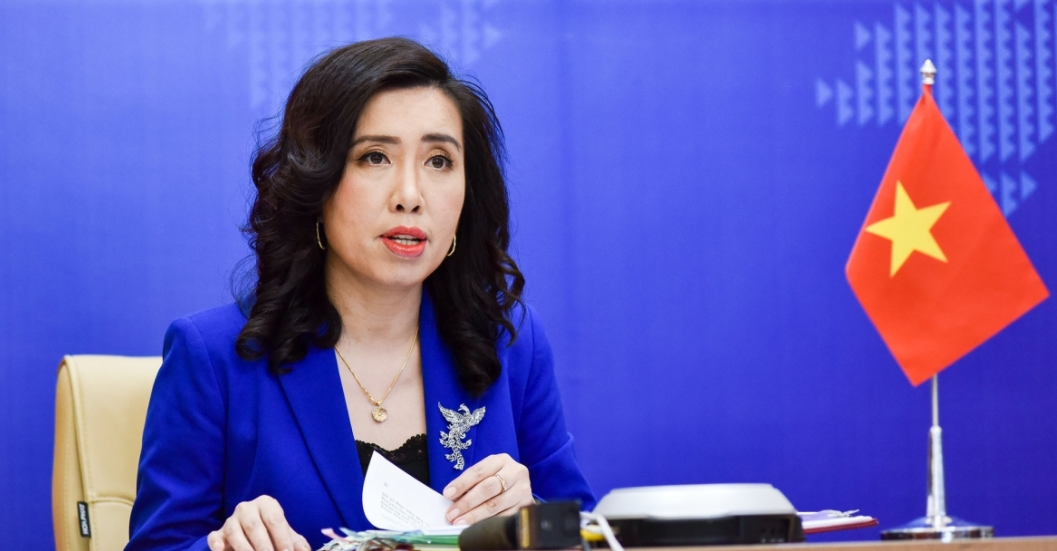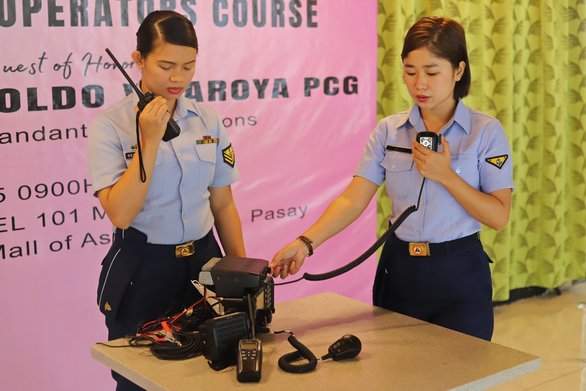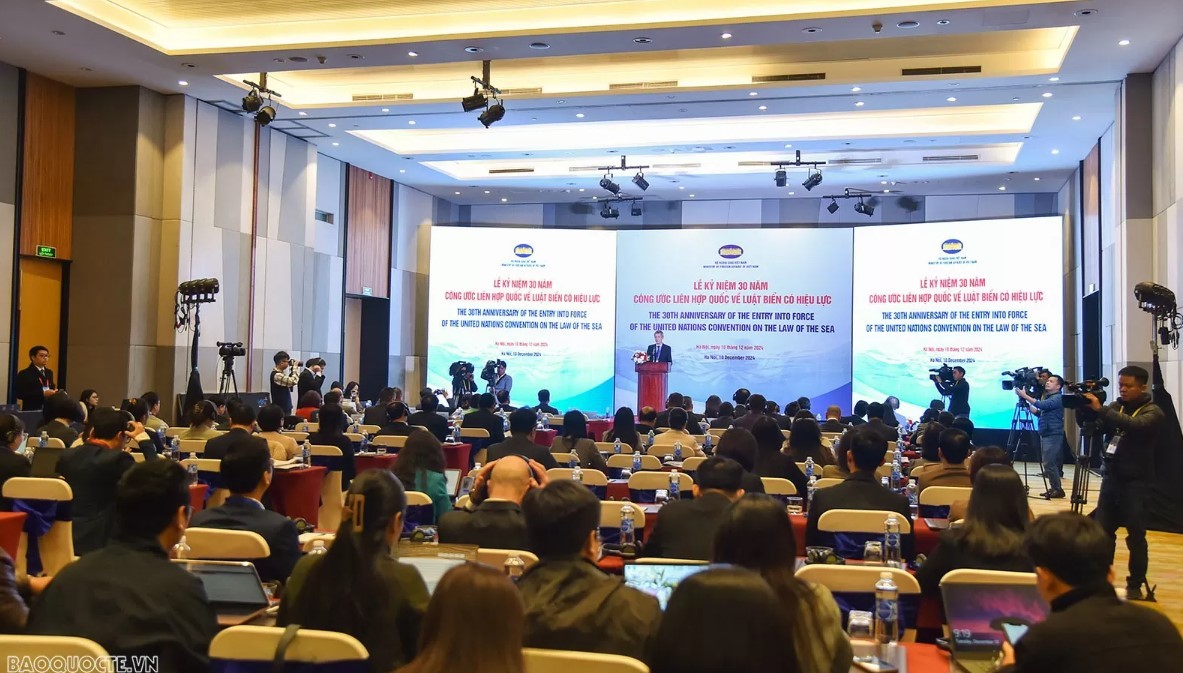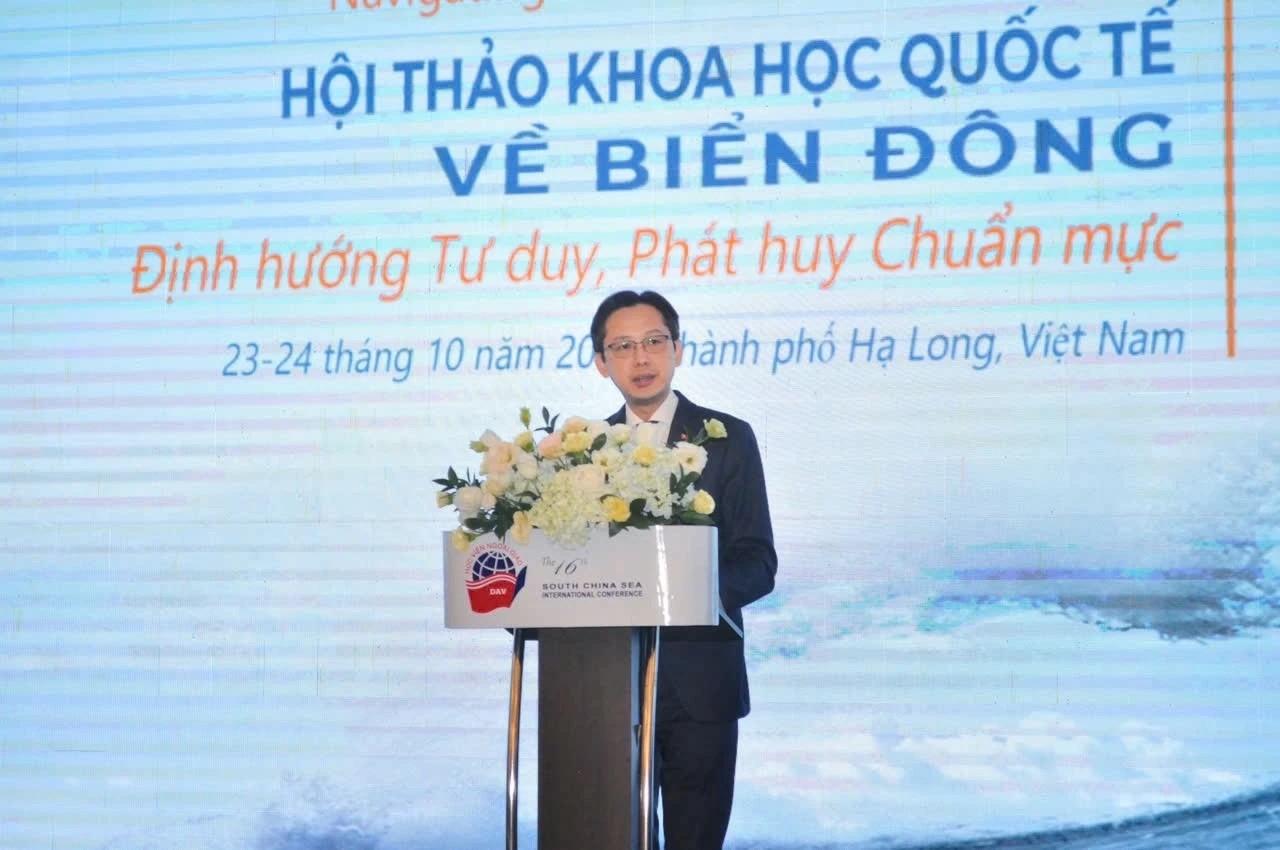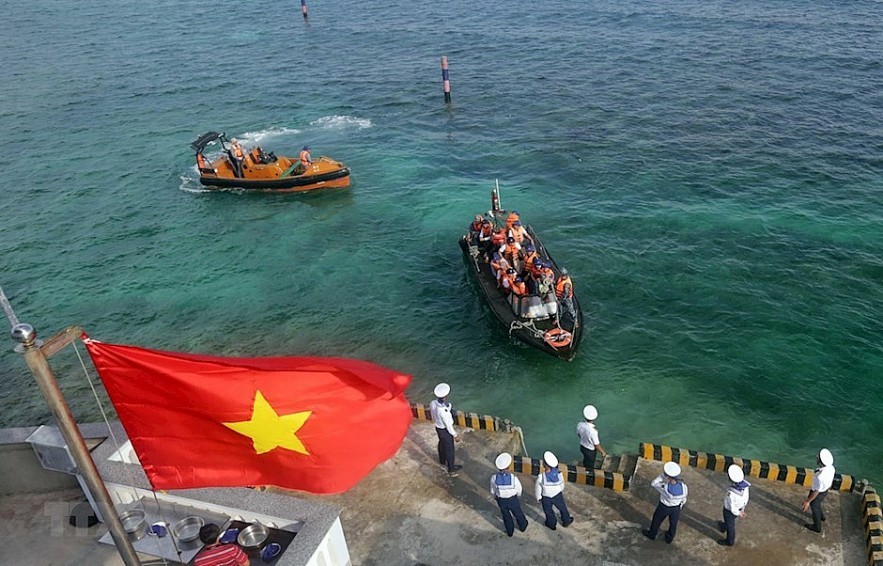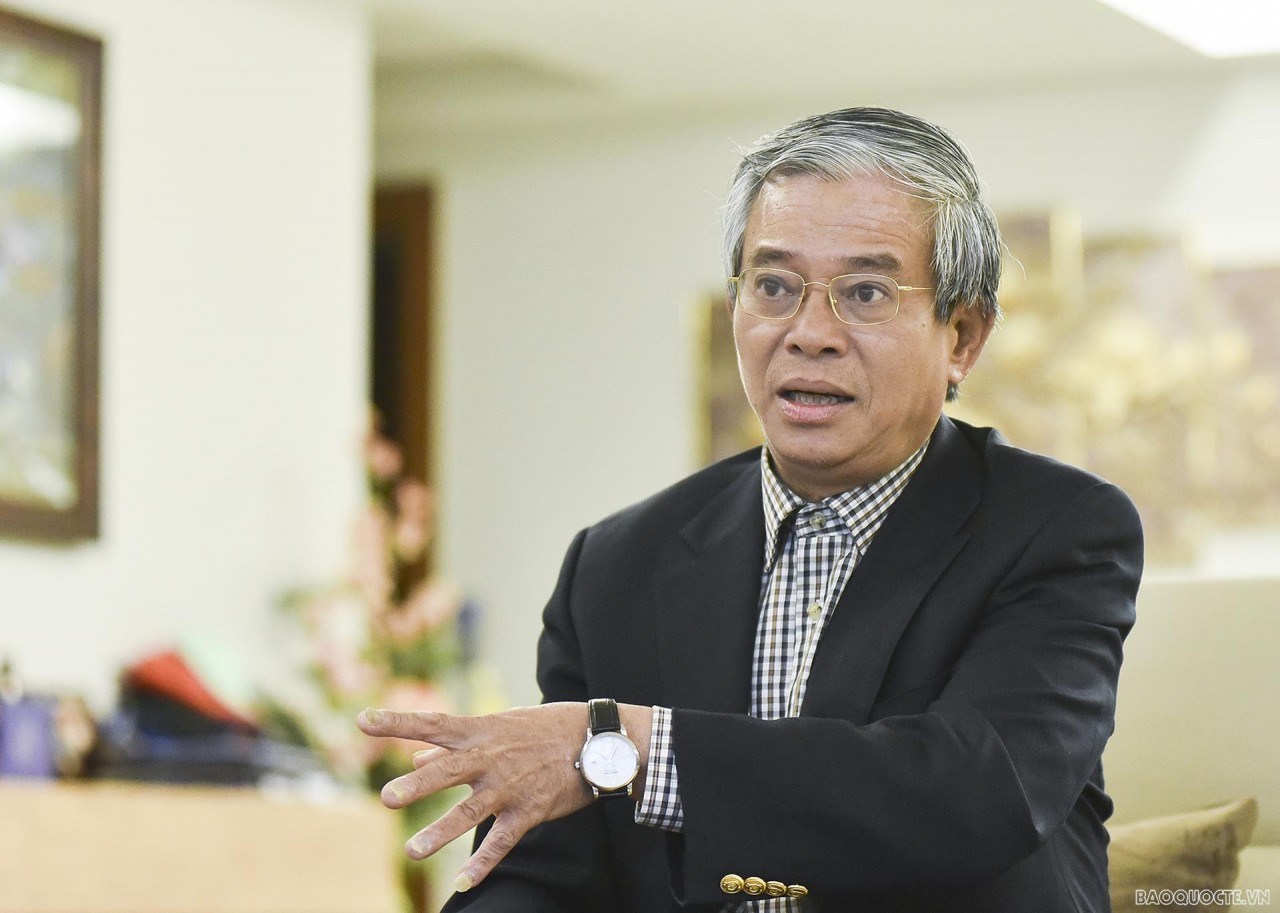International Experts: China's 'Nine Dash Line' Has No Legal Basis
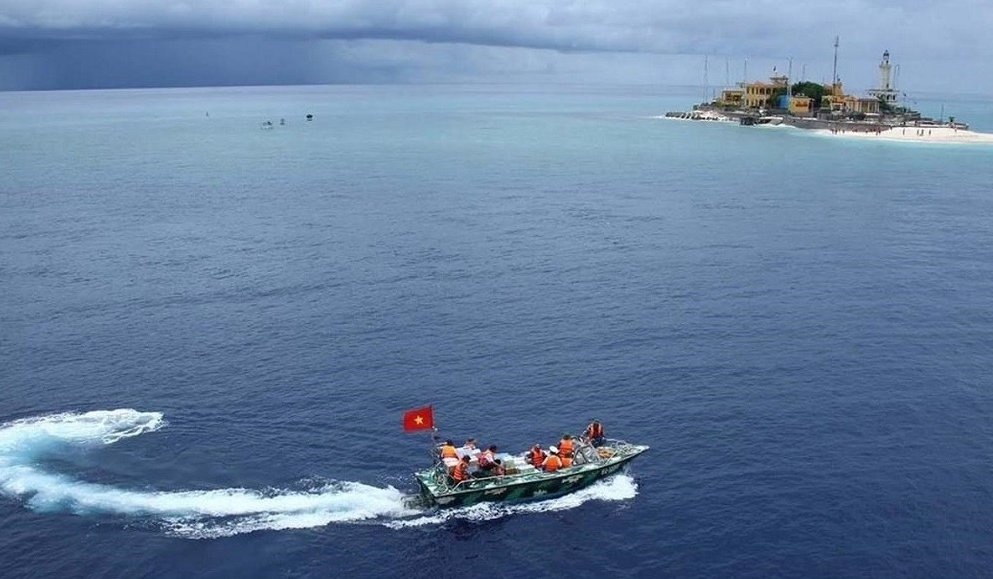 |
| Photo: Baoquocte |
University of Hamburg (Germany) held an online conference to discuss the 2016 PCA Arbitration on the South China Sea (called Bien Dong Sea or East Sea in Vietnamese). It has been five years since the order was first issued, giving the speakers much to talk about. The conference took place on July 9.
The conference received much attention from the international community. At the event, experts and researchers affirmed and further clarified the position and role of UNCLOS in the peaceful settlement of the Bien Dong Sea disputes. They also reaffirmed the value of PCA's 2016 ruling.
Chairing the conference, professor Thomas Engelbert from the University of Hamburg said that since the 2016 ruling was issued, the Bien Dong Sea situation continued to have tense developments. Continuous violations of international law caused many countries to voice their objections. Meanwhile, the process of negotiating a Code of Conduct in the South China Sea (COC) between the Association of Southeast Asian Nations (ASEAN) and China has not been completed.
According to the professor, the United States had recently promoted the Indo-Pacific strategy, the European Union (EU) and its many member states had also issued their own strategies on the region.
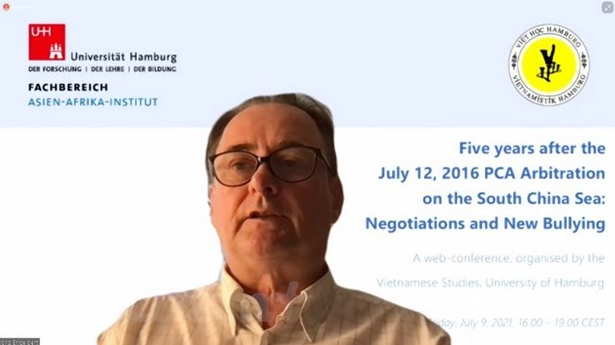 |
| Professor Thomas Engelbert from the University of Hamburg. (Photo: ViNA) |
Earlier this year, Japan repeatedly sent diplomatic notes to the United Nations rejecting China's sovereignty claims in the Bien Dong Sea. Many other countries, including United States, United Kingdom, Germany, France, Australia, New Zealand, Indonesia, Malaysia, Philippines, and Vietnam have also stated their opinions on tension in the region.
Professor Engelbert said that the international community wanted the Bien Dong Sea to be a safe, stable, and secure area. They also praise compliance with international law while strongly oppose to actions that violate the United Nations Convention on the Law of the Sea (UNCLOS) or the PCA's ruling.
Professor Suzette Suarez from the Bremen University of Applied Sciences (Germany) also affirmed that the 2016 ruling was a legal document with international value and played an important role in dispute settlement and in the demarcation of countries' continental shelf in the Bien Dong Sea.
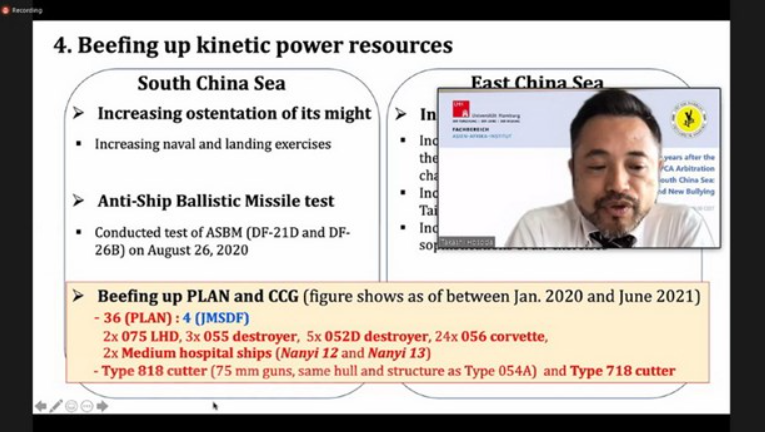 |
| Professor Takashi Hosoda from Charles University, Czech. (Photo: VNA ) |
According to UNCLOS, the demarcation of the continental shelf's limits is a binding and mandatory procedure. The international law and PCA's ruling have stated that China's 'Nine-Dash Line', or its other claims on the Bien Dong Sea, have no legal basis.
Sharing Suarez's opinion, other experts joining the conference considered the PCA's 2016 ruling as an important legal basis in resolving the Bien Dong Sea issue. They said that relevant parties needed to respect international law and not complicate the situation.
Regarding the role of European countries in solving the Bien Dong Sea issue, professor and journalist Rodion Ebbighausen (Deutsche Welle broadcaster) said that over the past few months, France, Germany, and the Netherlands issued national strategies for the Indo-Pacific.
In April 2021, the EU published a Strategy for Cooperation in the Indo-Pacific, which refers to the Bien Dong Sea and promotes international law, especially UNCLOS. According to Ebbighausen, the EU pursues a multilateral and inclusive approach in dealing with this issue, which uses peaceful means on the basis of international law.
| Regarding the Bien Dong Sea issue, Vietnam has repeatedly stated its lawful sovereignty. “Vietnam has sufficient legal basis and historical evidence to affirm its sovereignty over the Truong Sa (Spratly) and Hoang Sa (Paracel) archipelago, as well as legal rights to Vietnam’s territorial waters as defined in accordance with the 1982 United Nations Convention on the Law of the Sea (UNCLOS),” said the spokeswoman of Vietnam's Ministry of Foreign Affairs Le Thi Thu Hang on July 8. |
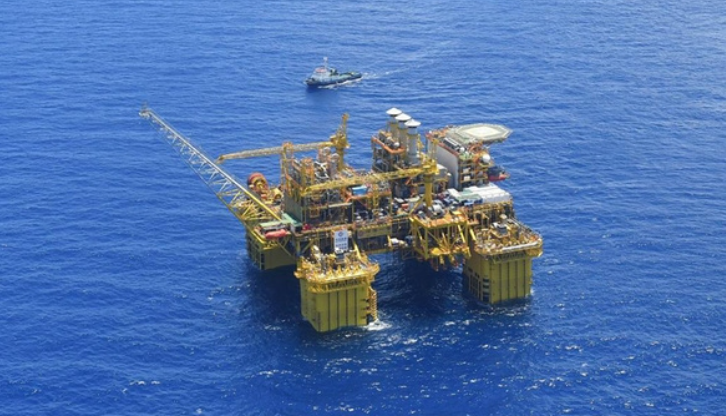 | Deploying world's largest energy station on Bien Dong Sea: What does China intend? An article by Tran Cong Truc, former Chief of the Government’s Border Committee, about China's "Deep Sea No.1" energy station deployed outside the Gulf of ... |
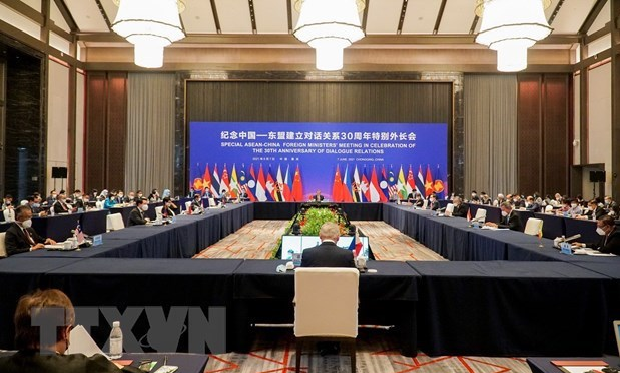 | South China Sea (Bien Dong Sea): Vietnam pledges to join efforts in DOC implementation Vietnam will continue to work with other ASEAN countries and China to fully and effectively implement the Declaration on the Conduct of Parties in the ... |
 | Malaysia says China conducts 'suspicious' air force activity over South China Sea Malaysia’s move follows months of diplomatic protests by the Philippines over the presence of hundreds of Chinese fishing boats in its EEZ. |
Recommended
 Seas and islands
Seas and islands
RoK Navy Ship Pays Friendly Visit to Da Nang City
 Seas and islands
Seas and islands
Naval Region 5 Promotes Reading Culture, Fosters Patriotism
 Seas and islands
Seas and islands
Coast Guard Region 2 Command Hosts Philippine Coast Counterpart
 Seas and islands
Seas and islands
Vietnam - Thailand Navy: Coordination to Well Address Problems at Sea
 Seas and islands
Seas and islands
Honoring the Fallen: Incense Offering for the 37th Anniversary of Gac Ma
 Seas and islands
Seas and islands
Vietnam Coast Guard Expands International Cooperation for Maritime Security
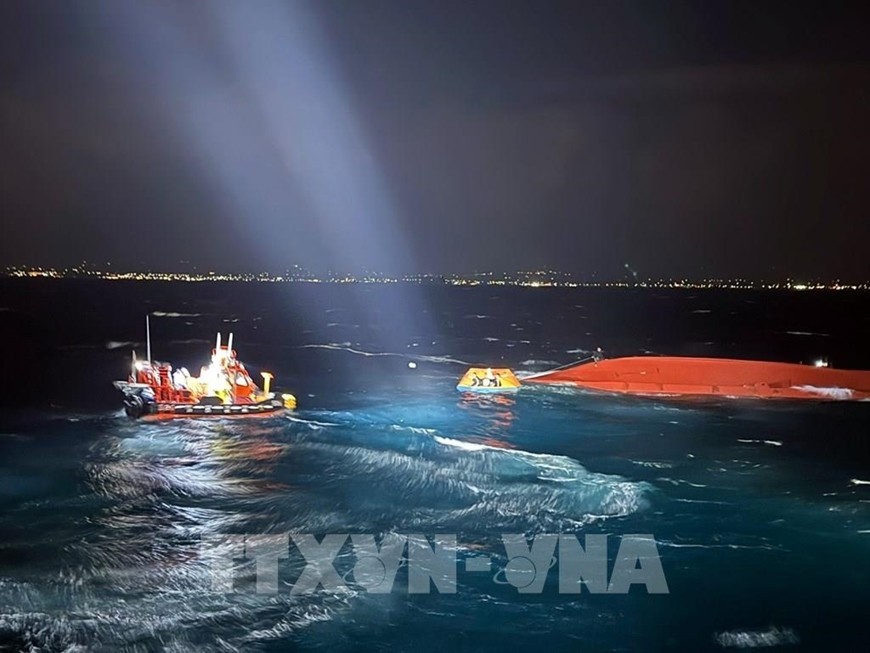 Seas and islands
Seas and islands
Three Vietnamese Fishermen Saved Off Jeju Coast
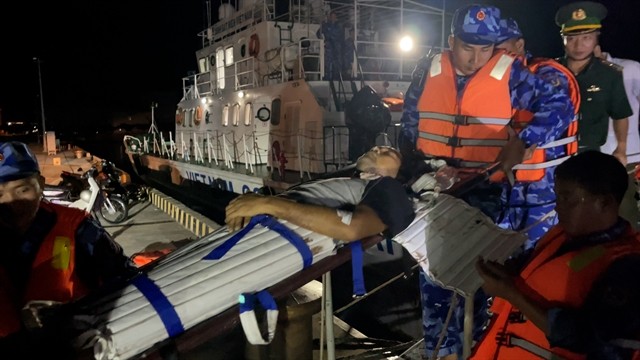 Seas and islands
Seas and islands

